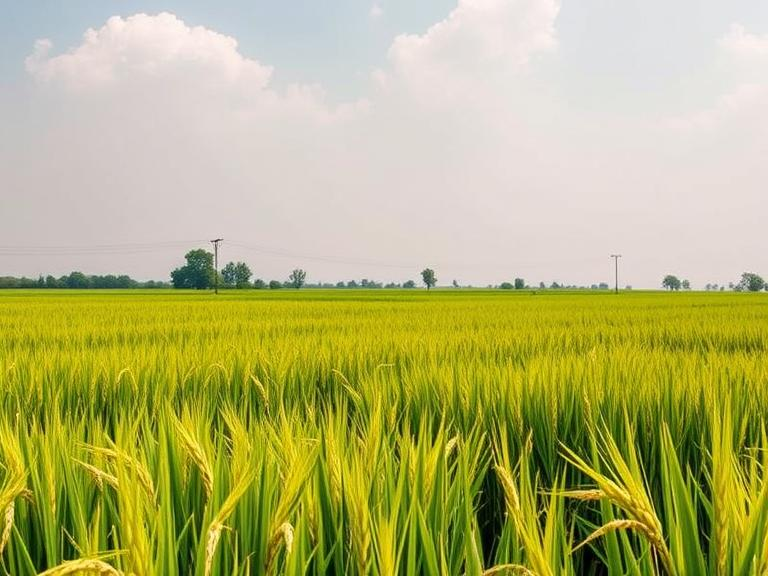When you think of rice, what comes to mind? For many, it’s Pakistan, a country that’s quietly become a giant in the global rice market. From fragrant basmati to hearty long-grain varieties, Pakistan’s rice is a staple on tables worldwide. Curious about how this nation plays such a big role?
Let’s explore Pakistan’s role in global rice in this detailed guide!
Why Pakistan Stands Out in Rice Production
Pakistan is one of the top rice producers globally, ranking among the elite alongside India, Thailand, and Vietnam. The country grows over 8 million tons of rice each year, thanks to its fertile lands and perfect climate. The Punjab and Sindh provinces are the heart of this production, where farmers work hard to cultivate rice that’s loved everywhere. What’s your favorite type of rice? Chances are, Pakistan grows it!
A Leader in Basmati Rice
If you’ve ever enjoyed the aroma of basmati, you’ve likely tasted Pakistan’s pride. The country is a leading exporter of basmati rice, known for its long grains and rich flavor. In 2023, Pakistan exported 5.5 million tons of rice, with basmati making up a huge chunk. Countries like the UAE, Saudi Arabia, and the UK have a strong demand for it.
How Pakistan Fuels the Global Rice Market
Pakistan doesn’t just grow rice, it gets it to the world. With a strong export network, the country shipped rice worth $2.5 billion last year. At Meskay & Femtee Trading Company, we’re proud to contribute to this effort, offering premium basmati and non basmati rice to global buyers.
Challenges in the Rice Industry
It’s not all smooth sailing. Climate change, water shortages, and rising costs challenge farmers.
1. Climate Change
Rising temperatures and unpredictable weather are causing disruptions. Droughts and floods make it tricky to grow consistent rice crops. Farmers are adapting with new techniques, but it’s a constant battle.
Keeping this in view, we offer hybrid seeds which are climate resistant. Moreover, we do local rice research to study and produce better, more resistant varieties
2. Water Shortages
At MFTC, we use sustainable farming techniques including laser land leveling (leveling the land before farming so that water could spread on the farm evenly and not get wasted), alternate wetting and drying technique (flood and dry the field alternatively so water could be used efficiently) and mechanized rice cultivation which needs less water in comparison to traditional rice growing method)
3. Rising Costs
All our mills have solar power generation setup so much of our needs are met with alternate energy sources which helps us keep the cost low while also keeping our operations sustainable or eco friendly.
Key Rice Varieties from Pakistan
Pakistan offers more than just basmati. Here’s a quick look:
- Basmati Rice: Fragrant and premium, perfect for biryani.
- IRRI-6: A long-grain variety, great for everyday meals.
- Brown Rice: Nutritious and growing in demand.
Pakistan’s Global Impact
One in every ten plates of rice worldwide might come from Pakistan. That’s a big deal! The country’s rice exports support millions of farmers and improve the economy.
Why Choose Pakistani Rice?
Looking for quality and value? Pakistani rice delivers both. It’s affordable, versatile, and packed with flavor. Whether you’re a chef, a trader, or just love good food, we have a variety that suits your needs perfectly. Have you sourced rice from Pakistan before? Tell us your experience!
Conclusion
Pakistan’s role in the global rice market is undeniable. From basmati to brown rice, this country feeds the world with skill and dedication. At Meskay & Femtee we’re excited to be part of this journey, bringing you the best basmati and non basmati rice.
Ready to explore Pakistan’s rice? Start here and taste the difference!
FAQs
- What is the best way to store sesame seeds to maintain freshness?
Sesame seeds should be stored in a cool, dry place away from direct sunlight and moisture. To extend their shelf life, keeping them in an airtight container or refrigerating them can prevent them from going rancid. If stored properly, raw sesame seeds can last several months, while toasted sesame seeds have a shorter shelf life due to their oil content.
- What’s the best way to store rice for long-term use?
Keep it in a cool, dry place in airtight containers to maintain freshness and prevent pests.
- How do I contact rice exporters in Pakistan for bulk orders?
Reach out via their official websites or trade platforms, providing details like quantity and destination.
- What payment methods do Pakistani rice exporters typically accept?
Pakistani rice exporters offer various payment methods, including Letter of Credit (L/C), Advance Payment (T/T), and Documents Against Payment (D/P), depending on transaction size and buyer-seller trust.


Leave a Reply